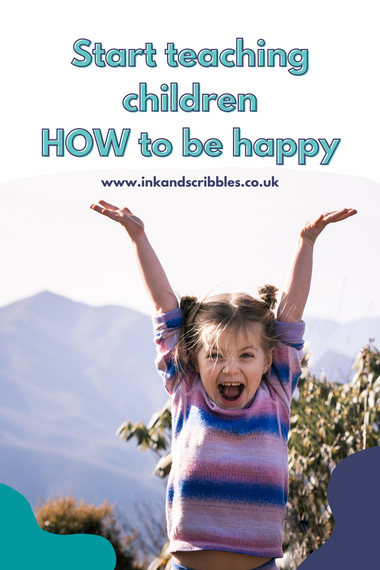Give them opportunities to develop resilience.
Resilience building is one of the key traits in emotional intelligence, boosting wellbeing through a strong link with self-esteem. Although resilience is required when faced with a challenge and therefore may not be accompanied by obvious feelings of happiness in the short term, it is connected to lower levels of distress. Resilient kids are required to look for and use their strengths, think flexibly and optimistically, learn from mistakes, and involve positive beliefs about self. Resilience overarches a general feeling of satisfaction which is a form of long-term happiness. Support them to build healthy relationships. There is so much research that shows feeling connected to others is a major factor in our happiness. In fact, a Harvard University study suggests that relationships are a predictor of long-term happiness. Positive, healthy relationships can help reduce stress and are connected to strong happy emotions. Guiding and coaching our kids to develop healthy friendships supports their happiness. Trust, listening, kindness and empathy are just some of the characteristics to support. You can read more about this on a previous blog. Focus praise on effort rather than achievement. Focusing on effort raises self-esteem and helps children to build a positive self-image. A study by Carol Dweck, the leading psychologist behind the theory of growth mindset, suggests that praising effort is motivating and boosts performance. Growth Mindset is the belief one has in their ability to improve and learn. This belief means that more time and effort is put into challenges, which leads to higher achievement. In turn, this boosts self-esteem, and a cycle emerges that happiness becomes the centre of in the form of satisfaction and optimism. Show them how to reframe thinking. Reframing is a thinking strategy that breaks a negative thought cycle. The human brain has a bias called the Negativity Bias. This describes the tendency to take more notice of negative experiences and place more importance on them, even when presented with an equal amount of positive experience. Even though we may think we see everything truthfully, the reality is that our minds are managing a huge amount of information at any given moment and therefore filtering occurs. Encouraging our children to assess their thinking and alter perspectives to more accurate views can all address the negativity bias through optimism and gratitude. This can help them manage uncomfortable emotions such as worry, anxiety and sadness. Examples include turning the thought “All my friends can do this accept me” into “What are my friends doing that I can learn from?” and stepping out of the anxiety associated with starting a new after school club by thinking about all the good things that will come from it. Help them recognise how they feel and build self-awareness. Emotional intelligence and happiness are interconnected. Emotionally intelligent people are self-aware. They know themselves well. They understand their feelings and the things that create them. People with high EQ are also pretty good at implementing thinking strategies to their emotions, building resilience and the ability to regulate and return to calm more quickly. Because they understand themselves, they tend to know their values and stick to them which means they are closest to their best self, promoting longer term happiness such as pride, contentment, and an inner sense of peace. On top of all that, emotionally intelligent people have a growth mindset, so they aren’t caught up in a negative self-image. This probably feels big when we apply it to the context of raising children, but when we remind ourselves that they, like all of us, are on a journey through life we understand that emotional intelligence is about self-development. In the context of raising happy kids, this really means helping them to develop curiosity about themselves, their emotions, their relationships and what will make life a success for them. Visit our resource store to find resources that build emotional intelligence!
0 Comments
Leave a Reply. |
Categories
All
Archives
April 2024
AuthorHey! I'm the founder, creator and voice of Ink and Scribbles. Sharing thoughts on child well-being and parenting that are based on my teaching and parenting experience, and NLP learning. |


 RSS Feed
RSS Feed